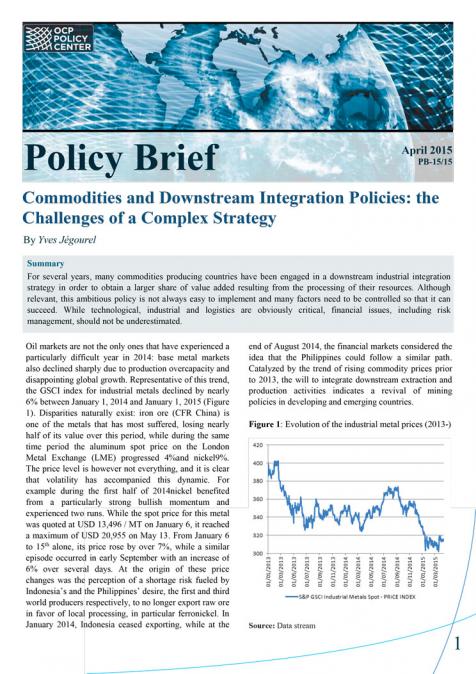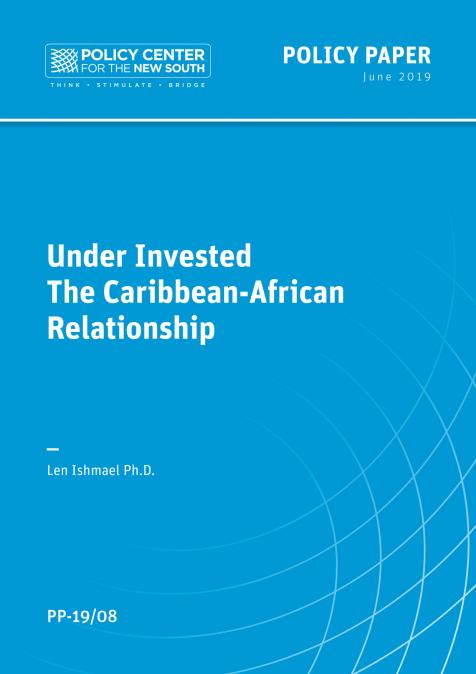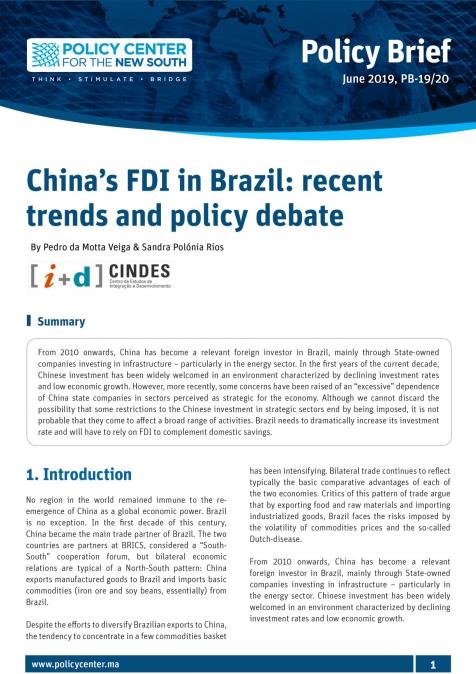Publications /
Policy Brief
Policy Brief
Commodities and Downstream Integration Policies: the Challenges of a Complex Strategy
April 21, 2015
For several years, many commodities producing countries have been engaged in a downstream industrial integration strategy in order to obtain a larger share of value added resulting from the processing of their resources. Although relevant, this ambitious policy is not always easy to implement and many factors need to be controlled so that it can succeed. While technological, industrial and logistics are obviously critical, financial issues, including risk management, should not be underestimated.





